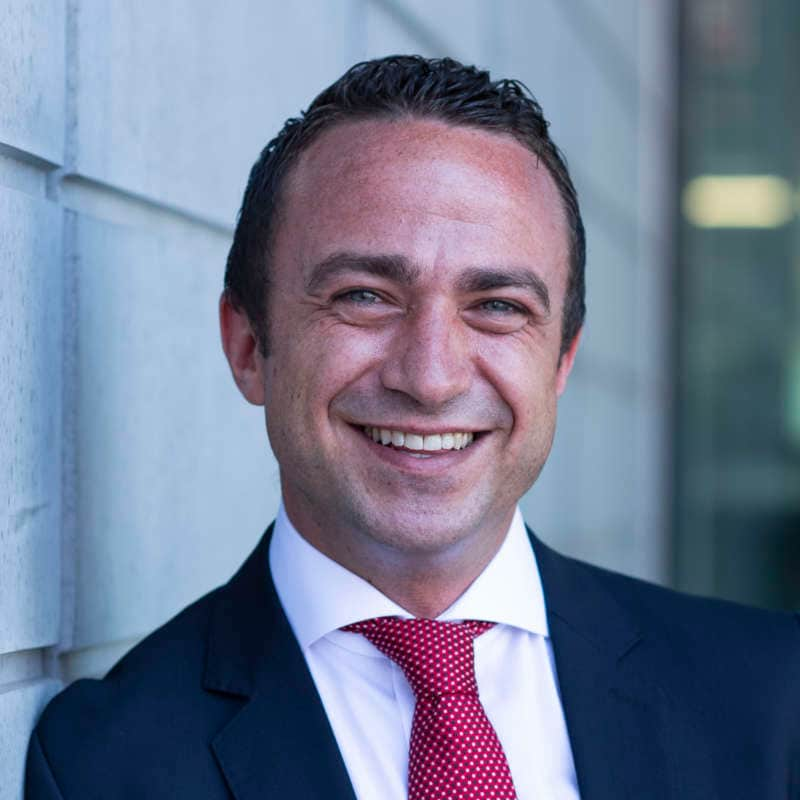
Sebastian Zollinger
Director, Head Real Estate Advisory, PwC Switzerland

Raffael Simone
Assurance Partner, PwC Switzerland
On 25 November, PwC hosted Emerging Trends in Real Estate 2023 in Zurich. An important forum for Swiss real estate investors to meet, the event centred around a presentation of the 20th Emerging Trends in Real Estate® Europe 2023 study conducted by PwC and the Urban Land Institute (ULI) followed by a benchmarking study focusing on the Swiss real estate investment market. Despite the turmoil in which the world finds itself, the core message of the event was that the future of the real estate industry is still stable – provided it keeps its calm and focuses on addressing important long-term developments.
Takeaway 1
The foundations of real estate are still rock-solid.
An important message up front: despite all the geopolitical headwinds, ESG challenges and alternatives available to investments in property, real estate remains a firm anchor in investors’ portfolios. There are still opportunities for growth and good returns on investment – thanks not least to real estate’s continued reputation among high earners as a hedge against inflation – but we are in a new market environment and the definition of what makes a good deal has changed.
Takeaway 2
The real estate market is always evolving. The rewards in 2023 will go to those who stay calm and evolve their portfolios.
The Emerging Trends in Real Estate® Europe 2023 survey indicates a widespread belief that even in the previously robust commercial property market, recession will lead to occupancies and rents falling. Residential property, however, is still highly prized, seen as providing more stable income than commercial real estate, which is particularly vulnerable to the effects of inflation. Against this backdrop, it pays to explore specialized sub-sectors such as residential property aimed at aging populations.
Takeaway 3
The biggest driver of change in the industry is environmental, social and governance (ESG).
In the 2023 real estate survey, 87% of respondents said it was important to deliver social impact alongside financial return. The event was a reminder that even in times of crisis, the industry needs to keep its sights on its longer-term impact on the built environment. But industry ESG priorities now extend beyond environmental sustainability to include everything from reducing emissions to diversity and inclusion. Last but not least, our benchmarking in Switzerland showed significant areas of improvement with regard to ESG disclosures in the annual reports of Swiss real estate investment companies.
Takeaway 4
There will be good opportunities to buy core real estate.
In the last few years, the high price of existing prime real estate assets has prompted some investors to adopt develop- or build-to-core strategies, in other words constructing and leasing out a new building rather than paying the high cost of a comparable existing asset. With values now falling, however, the coming year could be a great buying opportunity for core investors still under-allocated to the sector.
Takeaway 5
Given the possibility of recession, prospects for European cities have deteriorated.
The overall investment and development prospects for all 30 cities covered by the report have declined since last year’s survey. London still leads the city rankings by a considerable margin. Zurich, by contrast, has slipped from 14th to 17th place since last year. This is mainly due to the fact that an appreciating Swiss franc is making external investment more expensive. The survey indicates, however, that Switzerland’s biggest city still ticks the boxes in terms of strong transport links, a thriving hinterland and a well-diversified economic structure.

PwC Real Estate
Click the link below if you want to take a look at out competencies in PwC Real Estate.
#social#
Contact us

Sebastian Zollinger
Director, Head Real Estate Advisory, PwC Switzerland
Tel: +41 58 792 28 87

Partner, Assurance, Asset & Wealth Management, PwC Switzerland
Tel: +41 58 792 23 82





